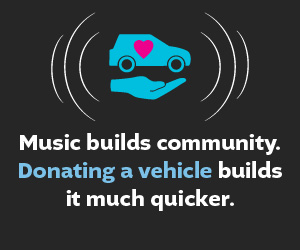Matters of Opinion
Schadenfreude is an all too human emotion
One morning this week I opened the newspaper to an article reporting that the chief of cardiac surgery at Cape Cod Hospital was pursued and arrested after allegedly running over a state police trooper’s foot while fleeing police at Logan Airport in Boston. And to tell you the truth, I was kind of ashamed of my reaction. According to the press release, the doctor was sitting in his Mercedes-Benz E350 in the passenger pickup area of Terminal C, when a trooper asked him to move his car and wait in the cell phone lot. In this day and age of airport security, this would seem a reasonable request, wouldn’t you agree, at least if you’re not the Duchess of Cambridge giving birth to the future King of England in the back seat. But the doctor didn’t think it was reasonable, not for the chief of cardiac surgery. He waved the trooper off, became angry, yelled and swore, got out of his car to berate the Trooper—again, all this is gleaned from the article—and after the trooper told him to stay in his car and that he was going to be arrested, drove off and ran over the trooper’s foot as he fled. So were my first thoughts with the State Trooper, who was taken to Massachusetts General Hospital with injuries to his foot? Not at all. Was I bemoaning yet another potentially dangerous police chase? That would have been prudent, but I guess I’ve experienced too much road rage from self-declared Lords of the Universe and I was happy the guy was arrested him, charged him with assault and battery with a dangerous weapon, disorderly conduct, assault and battery on a police officer and other motor vehicle violations.
This is an emotion called Schadenfreude, which means taking pleasure in the misfortunes of others. It’s a complicated emotion because it does not simply involve enjoying the pain of others, but the kind of pleasure we derive from watching their fall from grace, particularly when that person is in a powerful or enviable position. Did you shed any tears for Lance Armstrong, John Edwards, or Martha Stewart? No more than I shed for the Chief of Cardiac surgery, I bet.
It doesn’t make you a bad person. In fact researchers believe that the higher a person has risen, the farther we delight in seeing them fall. It makes us feel better about ourselves by comparison. It not only confirms the fact that the rich and famous are only human but that there is justice in the world.
But there’s another kind of Schadenfreude that comes from a sense of relief, and this one is especially hard to own up to. I feel it every August on Cape Cod during hurricane season, when the tropical storms begin to form over the Caribbean and exuberant forecasters tracking their progress like bicyclists in the Tour de France, detailing wind speed and direction and its every twist and turn as it makes its way toward us, stalling over Puerto Rico, making landfall in the Great Banks. We monitor the preparations and evacuations of the poor devils south of us and the massive destruction in the storm’s wake, counting the days until it reaches us, wondering if we’ll have to cancel events planned nine moths ago and silently praying all the while that it will veer left or right, weaken over cool water in the best case scenario, or head out to sea, but whatever it does and wherever it goes, miss us.
Nor do we stop watching TV if it does miss us. And here’s the shameful part, at least for me. We watch with an even keener interest as it rips the roofs from buildings and floods neighborhoods and destroys beachfront vacation homes. We don’t want to see people suffer. We don’t want to see houses tossed like salads and canoes floating down highways but we’re glued to the screen because we know that could have been us and that knowledge is a psychological dividend. Terrible as we might feel for feeling it, we’re doing better than someone else, and that someone else could have been us, and that makes us feel good.
Schadenfreude is a pretty basic, if not an admirable, human emotion. Scientists have traced it to activity in the basal ganglia, a motor region of the brain. So don’t feel too bad about it. Sometimes we eat the bear and sometimes the bear eats us. Unlike our friend the Chief of Cardiac Surgery, most of us don’t imagine that we’re too special to have to suffer the everyday hardships of the world. If we’re aware of our Schadenfreude it might even be good thing and make us feel a little guilty for our good luck. And that guilt is probably what makes us try to help the people we feel superior to.
I’m Ira Wood…and that’s my opinion.













